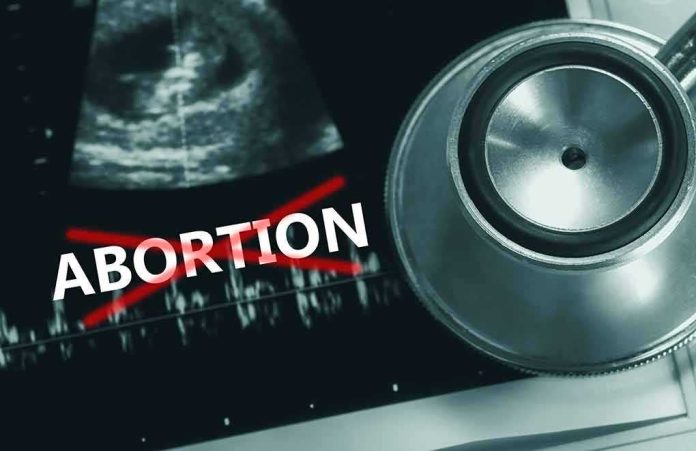
Oregon’s radical abortion mandate forces pro-life groups to fund the very abortions they exist to oppose, sparking a constitutional battle that could reshape religious liberty protections across America.
Key Takeaways
- Oregon Right to Life (ORTL) is challenging a state law mandating abortion coverage in health insurance plans, claiming religious discrimination.
- The law provides exemptions for certain religious organizations but denies them to ORTL, despite their religiously motivated opposition to abortion.
- A recent Supreme Court decision strengthens ORTL’s case by invalidating similar selective religious exemption schemes.
- The Ninth Circuit’s ruling could set a precedent for how states can regulate religious organizations’ healthcare coverage requirements.
- ORTL argues that forcing them to fund abortion violates their First Amendment rights and constitutes government overreach.
Religious Freedom Under Assault in Oregon
Oregon’s Reproductive Health Equity Act represents yet another example of leftist governance trampling the religious liberties of conservative organizations. The law mandates that employers provide abortion coverage in their health insurance plans, regardless of their moral or religious objections. While the legislation includes exemptions for churches and certain religious employers, it deliberately excludes pro-life advocacy groups like Oregon Right to Life (ORTL), effectively forcing them to fund the very procedures they exist to oppose.
ORTL’s challenge argues that the state is engaging in unconstitutional religious discrimination by providing exemptions to some religious organizations while denying them to others. The selective nature of these exemptions reveals the law’s true intent: to target and punish organizations that oppose the radical abortion agenda. This case highlights the growing threat to religious liberty posed by activist state governments that weaponize legislation against organizations with traditional values.
Constitutional Violations and Supreme Court Precedent
Attorney James Bopp Jr., representing ORTL, has built a compelling case based on First Amendment protections and recent Supreme Court precedents. The appeal follows a district court dismissal that questioned ORTL’s religious character, despite clear evidence of its faith-based mission. This judicial overreach exemplifies how activist courts attempt to redefine religious identity to suit political agendas, effectively telling religious organizations what they can and cannot believe.
“There are numerous assertions in the record by Oregon Right to Life that their belief in the sanctity of individual human life and opposition to abortion is based upon religious tenets,” said James Bopp during court proceedings.
A recent Supreme Court decision in Catholic Charities Bureau, Inc. v. Wisconsin Labor & Industry Review Commission significantly strengthens ORTL’s position. This June 2025 ruling struck down a similar exemption scheme, establishing that governments cannot selectively grant religious exemptions in a way that discriminates against certain faith-based organizations. The precedent makes it increasingly difficult for Oregon to justify its selective application of religious exemptions.
Government Overreach and Religious Discrimination
The state of Oregon’s defense rests on technical classifications rather than constitutional principles. They claim ORTL doesn’t qualify as a “religious employer” under their narrowly crafted definition, despite the organization’s explicit religious motivations. This arbitrary gatekeeping of which organizations qualify as sufficiently religious represents exactly the kind of government entanglement with religion that the First Amendment was designed to prevent.
“This case is saturated with examples of the exact things the Constitution prohibits. The First Amendment does not permit the government to favor secular organizations over religious ones. It does not permit the government to favor only the religious organizations of which it approves. It does not permit the government to draft laws in a way that achieves a religious gerrymander to ensure disfavored religious organizations cannot receive certain benefits. And it does not permit courts to second-guess whether an organization’s religious beliefs are, in fact, religious. The Ninth Circuit panel’s decision should be easy since the trial court disregarded the principles in so many ways,” Attorney Bopp.
ORTL’s Fight for Constitutional Rights
ORTL Executive Director Lois Anderson has expressed confidence in their legal position, highlighting the fundamental injustice of the mandate. The organization’s commitment to protecting unborn life is deeply rooted in religious convictions, making the state’s requirement particularly egregious. The mandate doesn’t just burden their religious practice—it directly compels them to finance actions they consider profoundly immoral and contrary to their core mission.
“The attempt by the state to force Oregon Right to Life to finance abortion—the precise human rights violation we are dedicated to opposing—is blatantly unconstitutional and unjust. Oregon Right to Life is exempt from the Mandate and well within our First Amendment rights to follow our sincerely held beliefs. We are confident that—with the help of our excellent legal team—our Constitutional rights will be recognized and upheld by the Ninth Circuit panel,” Lois Anderson, Executive Director of ORTL
The Ninth Circuit panel has yet to indicate when it will rule on this pivotal case. Whatever the outcome, the case represents a critical battle in the ongoing struggle to protect religious freedom from government overreach. Oregon’s mandate exposes the radical left’s true agenda: not expanding choice, but forcing compliance with their ideology while punishing those who dare to dissent based on traditional and religious values.



